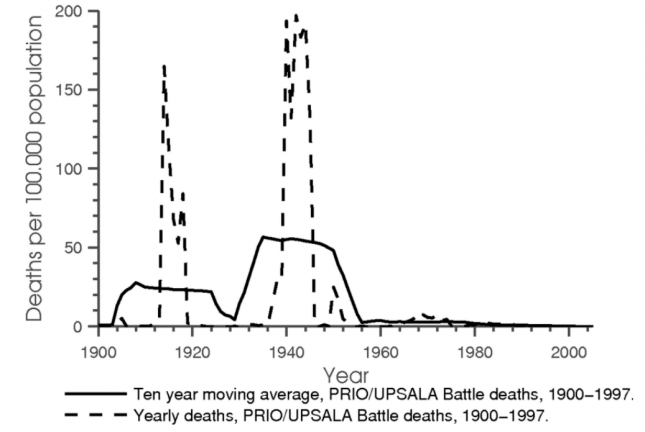Quote:
Originally Posted by MolsonExport

Climate change will be the primary culprit for mass movements of people in the decades to come. Arguably it already is. Conflict is often driven by resource constraints. Continental countries like the United States and China can divert whole river systems and build gargantuan canals to move water from wetter areas to places that are drying out. Most countries in Africa, the Middle East, and Southeast Asia haven't the geographical scope or economic clout to invest in the infrastructure that would mitigate the effects of climate change. tens of millions, perhaps hundreds of millions of people, will be impelled to move due to the desiccation of their environments, shifting rainfall, depleted groundwater, saltwater invading aquifers and groundwater, rising sea levels, and weather volatility/intensity. In many places this will be exacerbated by overpopulation.
|
The problem with framing a prediction this way is that it is more of a prophecy than a forecast. It is not falsifiable through future observation, since it can be interpreted so flexibly, and establishing a clear causal link through fossil fuel burning to global climate change and onto geopolitical events is impossible.
Bad events happen all the time and even without human factors we'd see climate change. Human conflict has always been with us too. This doesn't mean our GHG gas emissions aren't making it worse but it does make it hard to point to a specific drought or flood or war and say that GHG emissions "caused" it.
We are in a comparatively peaceful period right now:

Source
It's easy to come up with single examples of conflicts while not addressing the overall pattern. I think we've already seen a significant amount of warming since 1900, so if it really were a potential leading cause of wars you'd expect a chart that looks a little different. Maybe it will become the leading cause of conflict on a comparatively peaceful planet where large-scale armed conflict drops to ~0.
Depleted groundwater often has nothing to do with climate change. Many aquifers are being depleted much faster than they were ever replenished. Even in a world with constant GHG concentrations in the atmosphere, groundwater would be an issue in some places.



